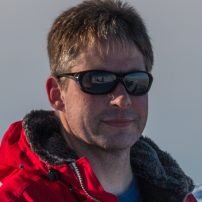
Overview
Sea ice algae are important primary producers, contributing to the base of the food chain in the Arctic Ocean. Their productivity and composition depend on the light, nutrient and salinity conditions present in the ice and underlying water column, all of which are likely to change in response to climate warming. Diatom-ARCTIC will characterize sea ice habitats in the Arctic and evaluate the biogeochemical and ecological contributions of the most prolific algal community – diatoms – within them. These insights will be applied to understand how the Arctic marine system will respond to ongoing changes that include thinning of sea ice, declines in nutrient inventories and freshening of Arctic Ocean surface waters. We will answer questions such as:
- How do sea ice conditions vary over different spatial and temporal scales in the Arctic?
- How do sea ice diatoms respond to variability in growth conditions?
This project is co-funded by the German Federal Ministry of Education and Research and by UKRI NERC.
Professor Martyn Tranter, co-lead investigator of Diatom-ARCTIC:
“Diatom-ARCTIC is a truly innovative study that combines extensive field and laboratory investigations to comprehensively investigate the potential response of sea ice algae to climate change from the species to pan-Arctic scales, while also bringing together interdisciplinary experts from the UK, Germany, and around the world.”
Lead Investigators
-
 View full profile
View full profileDr Marcel Nicolaus
Co-lead investigator, AWI
I am a research scientist at the Alfred Wegener Institute in Bremerhaven, Germany. My main research interest is the role of sea ice and its snow cover as key elements of the climate- and ecosystems. In Diatom-ARCTIC, I am the co-lead investigator, and responsible for the ROV based observations of the bio-physical sea ice and habitat conditions. I work on linking our field observations into general parameterizations and numerical models.
-
 View full profile
View full profileProfessor Martyn Tranter
Co-lead investigator, University of Bristol
I am a polar biogeochemist, resident in the Bristol Glaciology Centre at the University of Bristol, with research interests in nutrient cycling across a spectrum of cryospheric habitats.
Related Articles
-
UK and Germany combine forces to fund crucial Arctic science
For the first time, the UK and Germany have joined forces to investigate the impact of climate change on the Arctic Ocean. The UK’s Natural Environment Research Council (NERC) and Germany’s Federal Ministry of Education and Research (BMBF) have jointly invested almost £8 million in 12 new projects to carry… Read more
03 July 2018 -
What’s unique to the ‘last ice area’ in the High Arctic? Canadian researchers are finding out
Researchers from the Canadian Department of Fisheries and Oceans, Defence Research and Development Canada, the Alfred Wegener Institute in Germany and the University of Bristol in the UK are working together to investigate the \"last ice area\" in the High Arctic. Read more
07 June 2018

